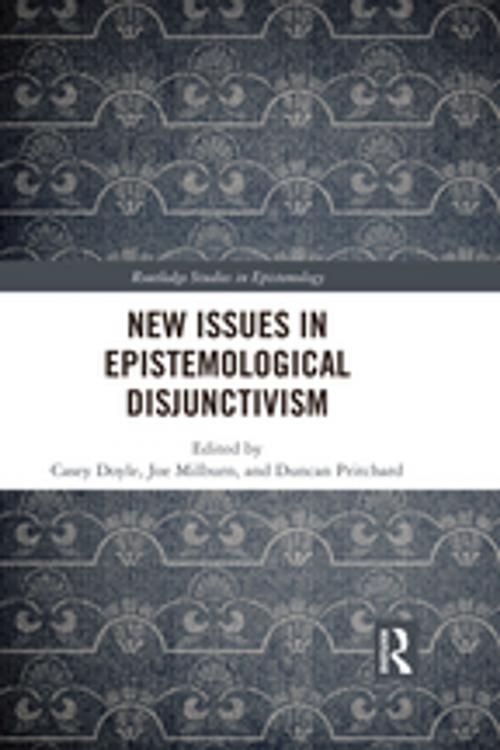| Author: | ISBN: | 9781351603553 | |
| Publisher: | Taylor and Francis | Publication: | April 29, 2019 |
| Imprint: | Routledge | Language: | English |
| Author: | |
| ISBN: | 9781351603553 |
| Publisher: | Taylor and Francis |
| Publication: | April 29, 2019 |
| Imprint: | Routledge |
| Language: | English |
This is the first volume dedicated solely to the topic of epistemological disjunctivism. The original essays in this volume, written by leading and up-and-coming scholars on the topic, are divided into three thematic sections. The first set of chapters addresses the historical background of epistemological disjunctivism. It features essays on ancient epistemology, Immanuel Kant, J.L. Austin, Edmund Husserl, and Ludwig Wittgenstein. The second section tackles a number contemporary issues related to epistemological disjunctivism, including its relationship with perceptual disjunctivism, radical skepticism, and reasons for belief. Finally, the third group of essays extends the framework of epistemological disjunctivism to other forms of knowledge, such as testimonial knowledge, knowledge of other minds, and self-knowledge. Epistemological Disjunctivism is a timely collection that engages with an increasingly important topic in philosophy. It will appeal to researches and graduate students working in epistemology, philosophy of mind, and philosophy of perception.
This is the first volume dedicated solely to the topic of epistemological disjunctivism. The original essays in this volume, written by leading and up-and-coming scholars on the topic, are divided into three thematic sections. The first set of chapters addresses the historical background of epistemological disjunctivism. It features essays on ancient epistemology, Immanuel Kant, J.L. Austin, Edmund Husserl, and Ludwig Wittgenstein. The second section tackles a number contemporary issues related to epistemological disjunctivism, including its relationship with perceptual disjunctivism, radical skepticism, and reasons for belief. Finally, the third group of essays extends the framework of epistemological disjunctivism to other forms of knowledge, such as testimonial knowledge, knowledge of other minds, and self-knowledge. Epistemological Disjunctivism is a timely collection that engages with an increasingly important topic in philosophy. It will appeal to researches and graduate students working in epistemology, philosophy of mind, and philosophy of perception.















